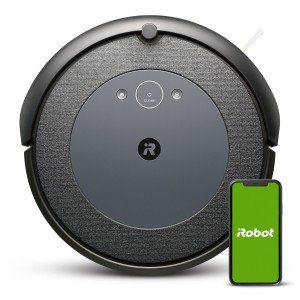The Main Problem With Automated Vacuum And How You Can Resolve It
The Rise of the Automated Vacuum: A Comprehensive Overview
As technology continues to progress, so too does the method we approach everyday jobs, consisting of cleaning our homes. The introduction of automated vacuums, commonly called robotic vacuums, has transformed the landscape of family chores, providing a level of benefit formerly unimaginable. This short article digs deep into the functions, advantages, challenges, and future of automated vacuums, illuminating why they are ending up being a staple in contemporary families.
What is an Automated Vacuum?
Automated vacuums are self-operating gadgets developed to tidy floors while requiring very little human intervention. Equipped with sensing units, they navigate rooms, prevent barriers, and return to their charging stations when short on battery. Lots of models even offer programmability through smartphone apps, enabling users to set cleaning schedules or manage the vacuum remotely.
Key Features of Automated Vacuums
Function
Description
Navigation
Utilizes sensing units and cams to map out spaces, permitting systematic cleaning courses.
Programmable Cleaning
Users can arrange cleanings via mobile apps or pre-set timers on the gadget.
Smart Home Integration
Compatibility with smart home systems (e.g., Alexa, Google Home) for voice control.
Dirt Detection
Advanced models can identify locations with more dirt and concentrate on them for deeper cleaning.
Charge Dock
Immediately go back to its charging station when battery levels are low.
Numerous Surface Cleaning
Can transition flawlessly in between numerous floor types, including carpet, tile, and wood.
Advantages of Automated Vacuums
Time-Saving: Automated vacuums can considerably decrease the time spent on family chores, enabling users to designate their time to more pleasurable activities.
Consistency: These devices provide a constant cleaning schedule, guaranteeing that dirt and dust don't have a chance to build up.
Accessibility: Individuals with mobility challenges may discover automated vacuums particularly advantageous, as they ease the physical needs of vacuuming.
Technological Innovation: Many models come with advanced features such as app control, which makes it possible for users to monitor and manage their vacuum from virtually anywhere.
Energy Efficient: Most robotic vacuums are created to operate effectively, making use of less energy than traditional vacuum cleaners.
Downsides to Consider
While the benefits of automated vacuums are various, there are also some potential drawbacks:
- Cost: While rates have ended up being more competitive, high-end designs can still be a substantial investment.
- Limited Suction Power: Robotic vacuums might not provide the very same powerful suction as standard designs, specifically on high-pile carpets.
- Upkeep Needs: Users should frequently clean up brushes and filters to keep optimal performance.
- Size Restrictions: Some learners might struggle to browse tight spaces or high furnishings, resulting in locations that stay uncleaned.
Popular Brands and Models
When buying an automated vacuum, it's necessary to select a reputable brand that fits individual cleaning needs. Here are some widely-regarded choices in the market:
Brand
Model
Key Features
iRobot
Roomba i7+
Self-emptying base, advanced smart mapping, Alexa compatible.
Ecovacs
Deebot Ozmo T8
Integrated mopping function, exceptional navigation, and smart home compatibility.
Roborock
Roborock S7
Strong suction power, sonic mopping, multi-floor mapping.
Neato Robotics
Neato D7
D-shape style for corners, LaserSmart mapping technology.
Future of Automated Vacuums
The trajectory for automated vacuums points towards higher elegance and integration with smart home technologies. As expert system (AI) becomes more ingrained in family devices, future models are expected to take advantage of machine learning to boost their cleaning performance and navigational capabilities.
Possible advancements include:
- Enhanced AI Learning: Improved algorithms allowing vacuums to discover user habits and adjust their cleaning schedules appropriately.
- Enhanced Navigation: Continued development of LiDAR and cam systems for better challenge avoidance and mapping.
- Multifunctionality: The emergence of vacuums that can not just tidy floors however also take on dusting and other family tasks.
Often Asked Questions (FAQs)
Q1: Can automated vacuums tidy carpets effectively?
A1: Many modern-day automated vacuums include strong suction abilities and specialized brushes created for carpet cleaning. Nevertheless, deep cleaning high-pile carpets may still require standard vacuuming methods.
Q2: How long do automated vacuums typically work on a single charge?
A2: The runtime can vary by design, however the majority of robotic vacuums can run between 60 to 120 minutes before needing a recharge. More innovative models may have longer runtimes.
Q3: Are automated vacuums ideal for homes with pets?
A3: Yes, numerous automated vacuums are developed with family pet owners in mind. best automatic vacuum include stronger suction and tangle-free brushes that can get pet hair successfully.
Q4: How frequently should I run my automated vacuum?
A4: This largely depends upon the foot traffic in your home and individual preference, however many users find running it everyday or every other day keeps their floors clean.
Q5: Can I by hand control my automated vacuum?
A5: Yes, a lot of automated vacuums come with manual control options through remote or mobile apps, enabling users to direct the vacuum to specific areas.
Automated vacuums represent the intersection of innovation and convenience, significantly streamlining home cleaning tasks. While best buy robot vacuum might have restrictions, their benefits often outweigh the downsides, making them a valuable addition to modern-day homes. As technology continues to advance, we can anticipate these gadgets to develop further, boosting their energy and efficiency. For anyone seeking a more efficient cleaning routine, an automated vacuum may just be the solution.
